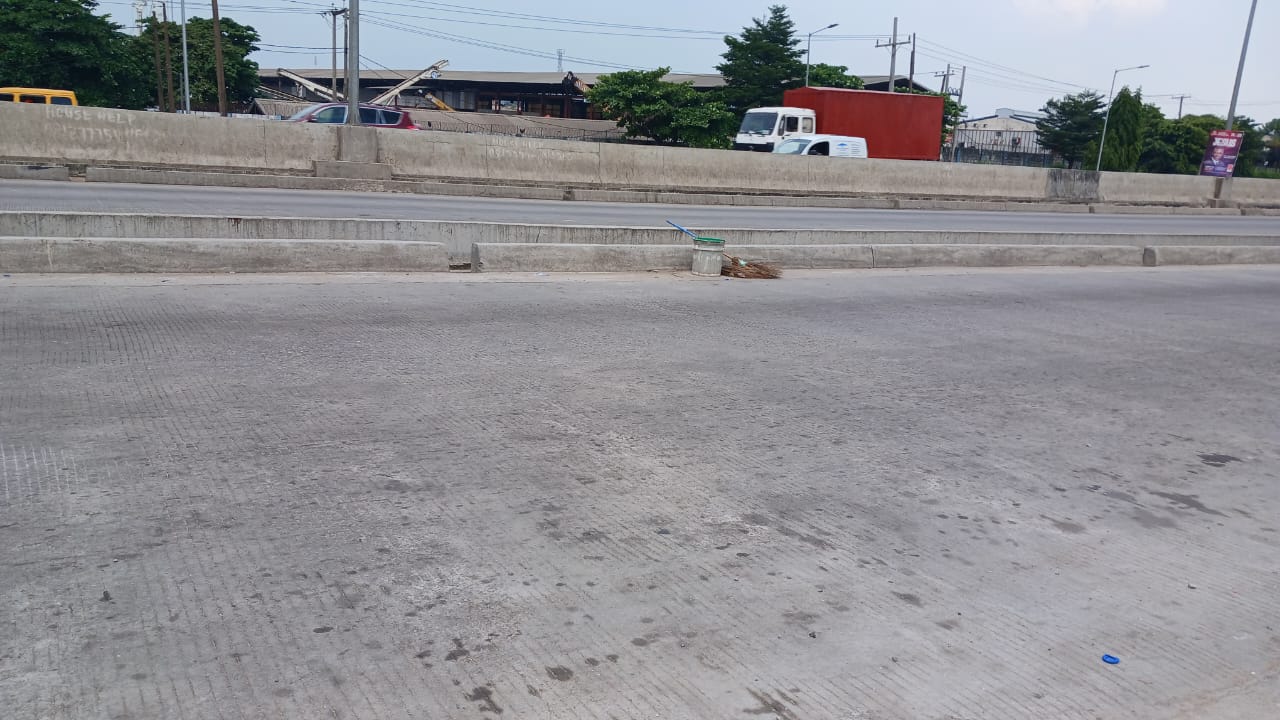By Dayo Ajala
Infrastructural development holds a pivotal position in the economy of any country as it serves as the basic pillar in creating an enabling environment for businesses to thrive and lays the foundation for sustainable economic growth and the creation of wealth. A research by Oxford Economics, the United Kingdom rail sector supported £42.9 billion of economic production and was associated with 710,000 jobs and £14.1 billion in tax revenue in 2019.
In Nigeria, the Federal Government in its quest to ensure the availability of land whenever the need arose for infrastructural development had enacted the Land Use Act 1978 now cited as Law of the Federation of Nigeria CAP 15 LFT 2007 and vested all Lands in the state to the governor who holds in trust for the citizens and made every land owner in Nigeria become a leaseholder for a maximum term of 99 years.
Whenever the government requires land to build public infrastructure, the existing leaseholder’s interest in the land is usually revoked for overriding public interest. In such an instance, the law provides for the payment of compensation for the improvement of the land hence the need to carry out compensation valuation.
Developing public infrastructures in Nigeria has become imperative in view of the population growth and much desired proportional needs of the people which keep rising due to demands on available and often limited infrastructures. This often puts pressure on the government to consider immediate and most importantly, a long range of solutions expected to guarantee that the issues are best resolved with the future in mind.
Among such is the increased demands for more durable, safe, and pliable roads; more housing facilities and indeed the need to lessen the impact of heavy haulages on the Nigeria roads through the effective usage of rail transport which is expected to run through the nation’s sprawling land mass.
While the government considers these to be most expedient, it is also always held back by challenges which often pose hurdles to providing such modern and efficient infrastructures either in the railway system, roads, housing, industrialization, or other public facilities.
Among these is limited funding. Adequate funding is crucial for the development of public infrastructure. In Nigeria, budgetary constraints and competing priorities often limit the funds available for such projects. This lack of financial resources can impede the timely completion of projects and hinder the overall expansion and modernization of the railway network.
There are also security concerns as Nigeria faces such security challenges, including vandalism, theft, and attacks on rail infrastructure. These not only disrupt operations but also increase maintenance costs and pose a threat to the safety of passengers and cargo.
Effective maintenance is indeed essential for the longevity and safety of railway infrastructure, but the nation has been bedevilled with poor and inadequate maintenance culture over the years. This is often worsened by misappropriation, wrong priority, in fact, corruption and inadequate funding. The lack of a robust maintenance culture in Nigeria can result in the deterioration of tracks, signalling systems, and other components, leading to operational inefficiencies and safety concerns.
The public sector in Nigeria may encounter challenges related to outdated technology, inadequate skills, and a lack of capacity for project planning and execution. Addressing these gaps requires investments in training and technological upgrades to ensure the successful development and operation of a modern railway system.
Achieving seamless integration between different modes of transportation, such as railways, roads, and ports, is crucial for an efficient transportation network. The lack of effective coordination and integration between these modes can limit the overall effectiveness of the railway system.
Addressing these challenges requires a holistic approach involving government commitment, private sector participation, and collaboration with international partners. Overcoming these obstacles is essential for realizing the full potential of railways in enhancing transportation, promoting economic development, and reducing the burden on other congested modes of transportation in Nigeria.
A very crucial hindrance often begins with land acquisition and right-of-way issues. Acquiring land for projects and obtaining the necessary right-of-way can be complex and time-consuming. Issues related to land ownership, compensation for displaced communities, and bureaucratic procedures can lead to delays and disputes, slowing down project implementation.
Compensation valuation in public infrastructural development therefore involves a systematic process to determine fair reimbursement for individuals or communities affected by the construction or expansion of public infrastructure projects. The valuation considers various factors to ensure equitable compensation:
Property Appraisal: Skilled appraisers assess the market value of properties, considering factors such as location, size, and potential for development. This forms the basis for determining compensation for property acquisition.
Economic Impact: Compensation valuation considers the economic impact on businesses or individuals affected by the infrastructure project. This includes assessing potential business disruption, relocation costs, and any income loss.
Social Impact: The social implications of the infrastructure project are considered in compensation valuation. This involves evaluating the impact on communities, including displacement, changes in lifestyle, and community cohesion.
Legal and Regulatory Compliance: Compensation valuation adheres to legal and regulatory frameworks. Governments often establish guidelines and criteria for compensation, ensuring that the process is transparent and complies with the rule of law.
Negotiation and Consultation: Stakeholder engagement is crucial in compensation valuation. Governments or project developers engage in negotiations with affected parties to understand their concerns and preferences. This process often involves public consultations to gather input and address community needs.
However, delayed payment of compensation claims to claimants, specification of valuation methods to be adopted in the Land Use Act, lack of agricultural database, land ownership and tenure system, inadequate compensation rate and undue pressure on the valuer from members of the affected communities have been identified to hinder valuation compensation in Nigeria.
Addressing challenges related to valuation compensation in Nigeria will then require a comprehensive and coordinated approach from the government which includes establishing and communicating a transparent legal framework for compensation valuation in infrastructure projects. Government must engender clear laws and regulations as a basis for fair and consistent compensation practices.
Experts and government in the sector also need to engage in meaningful consultations with affected communities early in the planning stages of infrastructure projects to gather input and address concerns which can help in developing compensation strategies that align with the needs and preferences of the local population.
Professionals like appraisers, surveyors, and legal experts involved in valuation must also invest in training and capacity building. A skilled workforce can ensure accurate and fair property valuation, reducing disputes and delays.
There is also the need to implement modern technology, such as Geographic Information System (GIS) mapping and satellite imagery, to enhance the accuracy of property valuation. Technology can streamline the valuation process and provide verifiable data to support compensation decisions.
Sensitizing the people through the conduct of public awareness campaigns to educate communities about the valuation and compensation will help manage expectations, increase transparency, and reduce potential conflicts during project implementation.
It is also important to consider establishing compensation funds to ensure timely payment to affected parties by eliminating bottlenecks often associated with delayed payments. Dedicated funds can prevent delays caused by budgetary constraints and demonstrate the government’s commitment to fair compensation.
Stakeholders must consider it important to enforce strict timelines for the valuation and compensation process. Delays in compensation payments can exacerbate the negative impacts on affected communities, inflationary factors, and others such may lead to increased resistance to infrastructure projects.
Alternative Dispute Resolution (ADR) mechanisms such as mediation or arbitration are also necessary measures to resolve conflicts related to compensation. ADR can provide a faster and more cost-effective way to address disputes compared to lengthy court proceedings.
Nigeria is not an island, as such the nation can benchmark valuation and compensation practices against international best practices by learning from successful models in other countries to provide insights into effective strategies for addressing similar challenges.
Government as investors in public infrastructures should continually encourage private sector participation through the Public Private Partnerships (PPP) model in infrastructure projects, including valuation and compensation processes.
Implementing these strategies requires a commitment from the government, collaboration with stakeholders, and a focus on balancing the interests of development with the rights and well-being of affected communities.
* Esv Ajala (ANIVS RSV), an Estate Surveyor and Valuer, wrote Abuja.

 Join Daily Trust WhatsApp Community For Quick Access To News and Happenings Around You.
Join Daily Trust WhatsApp Community For Quick Access To News and Happenings Around You.



